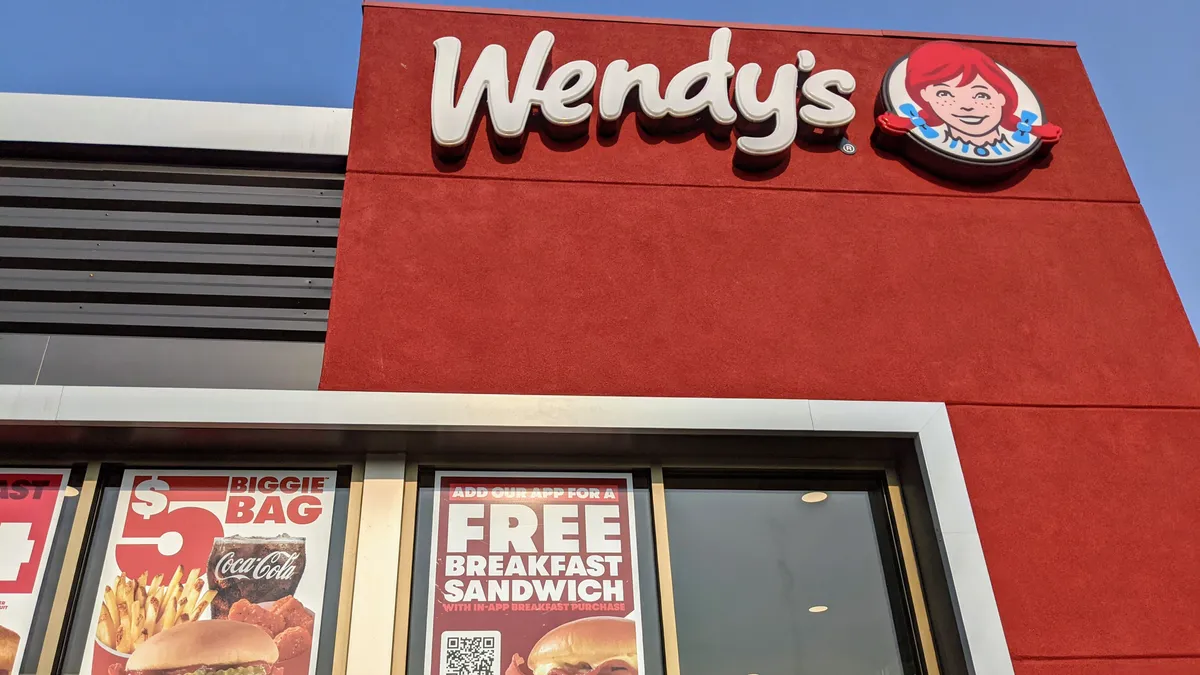Dive Brief:
- Wendy’s is focused on delivering consistently strong customer experience for in-person and digital orders to boost sales and customer frequency, executives said on a Q2 2025 earnings call last week.
- Customer satisfaction with orders through employees is up 140 basis points year over year, according to CFO and interim CEO Ken Cook. Customer satisfaction improvements for digital ordering were even larger, driven by improvements to accuracy, he said.
- “We know there is a high correlation between customer satisfaction and sales growth and are confident that the continued improvement here will result in increased frequency by our customers,” Cook said during the call.
Dive Insight:
Cook, who took on the interim CEO role last month, sees customer experience and frequency as complementary goals that build on each other.
If someone comes to Wendy’s once every three months, good experiences can move the needle, encouraging that customer to visit once every two months, Cook said. If they continue to have good experiences, their visit frequency can increase even further.
“We believe that hospitality and enhancing the customer experience is one of the most important areas that we can use to drive customer frequency,” Cook said. “And we have a tremendous opportunity to increase the frequency of the folks who are already visiting Wendy's today.”
Part of the equation is Wendy’s Fresh AI platform, a system of digital menu boards and AI-powered drive-thru ordering available at more than 160 locations. Fresh AI, which can also offer personalized order recommendations, is driving stronger sales, according to Cook.
“While we are in the early innings of our customer experience journey, we are pleased with the initial results that our investments are generating,” Cook said.
Despite the AI-powered lift, Wendy’s is still facing a pullback in consumer spending amid economic uncertainty, and second quarter 2025 results were weak. Same-store sales fell 3.6% year over year in the U.S. and 2.9% year over year globally, while global systemwide sales dropped 1.8% year over year to $3.7 billion, according to an earnings report.














